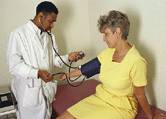Insurance major factor in determining receipt of preventive services
FRIDAY, July 17, 2015 (HealthDay News) — Americans are up to three times more likely to receive preventive care if they have health insurance, federal officials reported Thursday. And people paying for private insurance received the same preventive care as people on Medicaid or Medicare, according to the findings published in the July 17 issue of the U.S. Centers for Disease Control and Prevention’s Morbidity and Mortality Weekly Report.
In this study, the researchers used 2011 and 2012 data from the U.S. National Health Interview Survey to track who had received nine types of preventive care during the previous year. The survey involved 67,539 people drawn from a national sample. The preventive services examined by researchers included blood pressure, diabetes and cholesterol checks; screening for breast, cervical, and colon cancer; diet counseling; and vaccination for either hepatitis A or B.
Insurance proved the major factor in determining whether a person had received any of these services. For example, women were 2.5 times more likely to have had a mammogram to detect breast cancer if they were insured. People with health coverage were at least twice as likely to have received diet counseling or a cholesterol and diabetes check. It also appears that the Affordable Care Act provision that eliminates out-of-pocket costs for preventive care may boost people’s participation in services that are more expensive, lead author Jared Fox, Ph.D., a CDC health scientist, told HealthDay. For example, people with insurance were three times more likely to have received colon cancer screening than people without coverage.
Household income also appeared to play a role in whether someone received the preventive care they need, the researchers found. People making more than 200 percent of the federal poverty level were slightly more likely to have received preventive services. That’s $23,540 or more a year for a single person in 2015, and $48,500 for a family of four. In the strongest example, women were 43 percent more likely to have received breast cancer screening if they had a higher income. And higher-income people were about 25 percent more likely to have received cervical or colon cancer screening, or a diabetes or cholesterol check, the findings showed.
Full Text
Copyright © 2015 HealthDay. All rights reserved.








